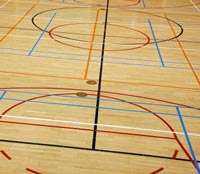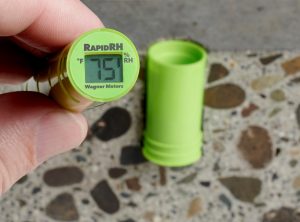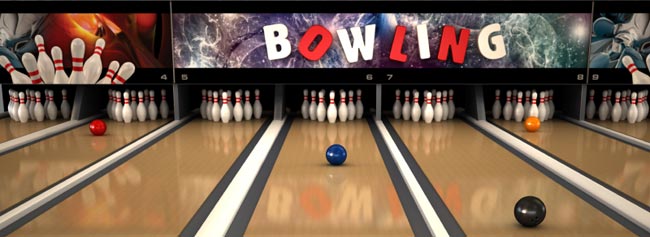Relative Humidity for Sports Floors
Since sports floors represent a significant investment, installers will ideally always specify stable and secure moisture content (MC) in the concrete subfloor. Otherwise, the water content in concrete can risk the entire floor. If installers pay little heed to MC in the subfloor, athletes will surely pay heed to the devastating effects of trapped moisture content.
Relative humidity (RH) is the key to determining stable MC in concrete subfloors.
Multi-Purpose Sports Floors
Increasingly, sports floors are tasked with multi-purpose versatility. This is a primary reason why synthetic floors – such as polyvinyl chloride (PVC) and poured urethane – have come to challenge maple wood for sporting competition.
 Let’s consider the costs based on the life cycle of the sports floor. According to a study conducted by the Maple Flooring Manufacturer’s Association (MFMA), poured urethane contains the highest life-cycle costs: $.43 per square foot (sq. ft). Poured urethane floors last 15 years, as compared to the 38-year life cycles of polyvinyl chloride and maple wood. Also, both synthetic options studied (poured urethane and PVC) cost approximately 28 percent more annually than maple wood. Synthetic flooring may be able to take a beating in a multi-purpose sports complex, but installers pay for it. The MFMA study reveals that sports facility decision-makers must replace synthetic sports floors 1.6 times more often than those that choose to go with maple sports floors.
Let’s consider the costs based on the life cycle of the sports floor. According to a study conducted by the Maple Flooring Manufacturer’s Association (MFMA), poured urethane contains the highest life-cycle costs: $.43 per square foot (sq. ft). Poured urethane floors last 15 years, as compared to the 38-year life cycles of polyvinyl chloride and maple wood. Also, both synthetic options studied (poured urethane and PVC) cost approximately 28 percent more annually than maple wood. Synthetic flooring may be able to take a beating in a multi-purpose sports complex, but installers pay for it. The MFMA study reveals that sports facility decision-makers must replace synthetic sports floors 1.6 times more often than those that choose to go with maple sports floors.
The Concrete Subfloor Factor
So, how does a concrete subfloor figure into it? Simple. Excess moisture content jeopardizes any sports floor covering.
The industry has grappled with concrete floor moisture test methodology for decades. In the past, contractors used the anhydrous calcium chloride test for testing surface moisture with mixed results. Many concrete floors failed because calcium chloride (CaCl) does not account for internal slab moisture content. In the mid to late 1990s, scientists started conducting extensive research to see if there was a way to test at a specific depth in the concrete, and be able to utilize that information to better predict what surface moisture conditions would be like once a finished floor product was installed. Thus, relative humidity testing was born and the industry has grown to embrace this method of testing that lets you know what the moisture WILL be, on the surface, prior to spending all of the time and money on a flooring installation (RH testing) vs. doing moisture testing that tells you what is going on at a specific point in time prior to installation (calcium chloride testing).
RH Testing
 Because a drying concrete slab has a gradient trend to its moisture content, the amount of water vapor at the surface is no indicator of the overall presence of moisture content in the slab. Keeping that fact in mind, any surface-limited test method is bound to give a false positive when trying to determine if the slab has reached installation conditions for the flooring specified in the building design. The true value of RH testing is its use of in situ probes – sensors installed within the concrete slab at a depth that has been proven to best represent the overall final RH level if the slab were to be sealed at that point in time.
Because a drying concrete slab has a gradient trend to its moisture content, the amount of water vapor at the surface is no indicator of the overall presence of moisture content in the slab. Keeping that fact in mind, any surface-limited test method is bound to give a false positive when trying to determine if the slab has reached installation conditions for the flooring specified in the building design. The true value of RH testing is its use of in situ probes – sensors installed within the concrete slab at a depth that has been proven to best represent the overall final RH level if the slab were to be sealed at that point in time.
It’s a test method that stands up to the time realities of a floor meant to last for up to four decades of hard-pounding, athlete-driven use.
Industry standard-makers recognize relative humidity as a credible moisture assessment method. The American Society for Testing and Materials (ASTM) has established RH testing through ASTM F2170 as a standard moisture content test procedure. In addition, the MFMA has also adopted RH testing as the recommended test method for sports floors.
RH testing is a credible investment in concrete subfloors when installing sports floor coverings. It’s safer to ensure accurate moisture content when a lifetime of competition is on the line.
